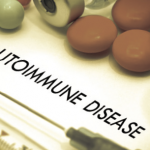
Subfertility is a big problem for women with RA.
Image Credit: phugunfire/shutterstock.com
ROME, Italy—In what researchers say is the first study evaluating cardiac magnetic resonance (CMR) findings in early rheumatoid arthritis (ERA) patients, cardiovascular abnormalities were significantly worse in patients with ERA than in matched, healthy controls. The study results were presented at EULAR 2015, the annual congress of the European League Against Rheumatism (EULAR).
Cardiovascular Concerns
Researchers at the University of Leeds scanned 66 patients with ERA, as well as 30 healthy controls matched to age, gender and blood pressure.1 The ERA patients had symptoms for no more than a year, never had treatment with disease-modifying therapy or corticosteroids and had a DAS28-ESR score of 3.2 or higher. Patients were 49 years old, on average, and the controls were 50.

Dr. Erhayiem
There was significantly worse arterial stiffness in patients with ERA, as measured by aortic distensibility (p=0.001), said Bara Erhayiem, BMBS, a research fellow in cardiovascular magnetic resonance imaging at the University of Leeds. Researchers also found that there was increased myocardial extracellular space in ERA and decreased LV mass (both p<0.01). There was a trend for lower ventricular end-diastolic volumes in ERA (p=0.047). Evidence of non-ischemic focal fibrosis was seen in five early RA patients and in just one control.
Cardiovascular disease is the most common cause of premature mortality in RA patients. These findings suggest that the evidence of cardiovascular decline exists earlier than previously known.
“The findings suggest higher cardiovascular risk at the time of diagnosis,” Dr. Erhayiem said. “Further investigation is needed to clarify the clinical implications and whether there is scope to modify [cardiovascular] outcome with effective RA therapy.”
Biologics
In another study, researchers using a national database in the U.S. found that patients on biologic therapy experienced only “modest” improvements in patient-reported outcomes compared with those reported before the biologic therapy was begun, said Leslie Harrold, MD, MPH, a rheumatologist and associate professor of orthopedics and physical rehabilitation at the University of Massachusetts Medical School.2

Dr. Harrold
Data were pulled from the Corrona registry, a database that includes information on more than 40,000 patients with RA. Researchers focused on 3,776 patients who were started on their first biologic therapy—between 2005 and 2014—and had a six- or 12-month follow-up.
The patients reported substantial symptoms even before biologic therapy, with an average score of 44 on the 0 to 100 scale in global assessment; an average score of 45 in pain; and an average score of 47 in fatigue. Patients also experienced an average of 2 hours of morning stiffness.


